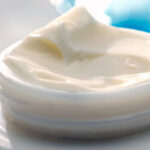Headlines
6 Ways Winter Affects Your Health
Winter does more than just raise your heating bill and chill your bones. It can have an effect on both your physical and mental health. Get examples—plus links to more information on how to deal with them—below.
 1. Winter makes some people SAD
1. Winter makes some people SAD
The short, dark days of winter can lead to seasonal affective disorder (SAD). This distinct type of depression often comes with extreme sleepiness, increased appetite, a heavy “leaden” sensation in the limbs, loss of interest, sense of hopelessness and social withdrawal. Doctors may recommend light therapy, exercise and cognitive behavioral therapy to help overcome SAD.
 2. Winter dries the eyes
2. Winter dries the eyes
Burning, itching, a feeling of grittiness—these symptoms may indicate dry eye, a condition in which the eyes don’t produce enough tears or the right quality of tears. This condition is often worse in winter because of the dry, cold air and the dryness that comes from heaters. Options for relief include artificial tears, dietary changes, prescription eye drops or even surgery in the most complicated cases.
 3. Weather swings may trigger migraines
3. Weather swings may trigger migraines
Research is not definitive, but anecdotally, a high number of patients note a strong connection between what’s happening outside and what’s happening inside their heads. Extremes in weather, including coming storms and big swings in temperature and barometric pressure, may all play a part. Try keeping a headache diary to determine if weather is a migraine trigger for you.
 4. Winter cracks and burns your skin
4. Winter cracks and burns your skin
Skin is prone to dryness in the winter, when humidity is low both indoors and out. Try taking short showers rather than long baths, which tend to dry the skin further. Use moisturizer throughout the day and run a humidifier in your home. And don’t skip the sunscreen. Contrary to popular belief, sun exposure in winter can cause as much damage as the summer’s hot rays.
 5. Winter changes eating habits in some
5. Winter changes eating habits in some
In cold winter weather, your body experiences changes in energy levels, metabolism and even food preferences. Think rich but not-so-healthy “comfort foods.” Counteract these urges by making smart food choices: homemade soups over high-sodium and highly processed store-bought varieties, for example. And avoid the steady diet of hot chocolate and cookies.
 6. Hibernation can wreck your exercise plan
6. Hibernation can wreck your exercise plan
If the cold days and dark nights of winter make you want to hibernate, consider this: Being inactive can take a toll on your fitness, your weight and your mood. Stay active with indoor options such as exercise classes, walking at the mall or home fitness videos. Or, if you’re feeling adventurous, try a new activity such as snowshoeing or cross-country skiing.
—Family Health Team, health.clevelandclinic.org














